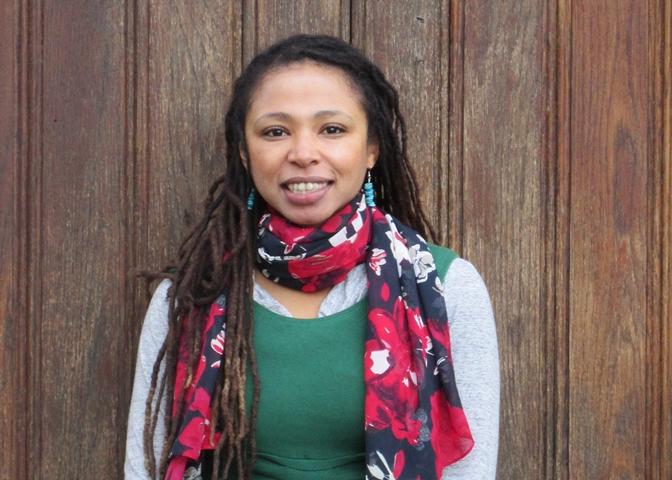Greer Schoeman
(South Africa)
MSocSc in Social Policy, University College Cork
Greer, who had a background with a project funded by Irish Aid, was supported to pursue a Masters at University College Cork for the 2014-15 academic year.

The course is a great way to get a good perspective of international policy. For the last few years the programme has been funded by Irish Aid so this fellowship is also a great opportunity to get an internal sense, to understand the Irish Aid objectives and how it all fits together.
Previously, I was the National Programme Manager for the South African National AIDS Council Women’s Sector Secretariat. This programme is currently funded by Irish Aid. The role basically is connected to advising government on women–centred HIV and AIDS prevention policy. My role was to work with different women’s rights organisations around the country to network and build capacity on how to influence policies. I was doing that from 2009 – 2013.
I am studying Social Policy in UCC. It really links directly to the work I have been doing in South Africa. On a content level I can understand a lot of the key issues on the course, but in terms of influencing government process we always fall a little bit short in terms of how to do policy analysis and how to coordinate the efforts of all the different groups that we work with. For me this course is about sharpening technical tools to do this work. The policy structure in South Africa tries to align internationally. The course is also a great way to get a good perspective of international policy. For the last few years the programme has been funded by Irish Aid so this fellowship is also a great opportunity to get an internal sense, to understand the Irish Aid objectives and how it all fits together. I am very fascinated by the fact that Ireland is a country of 5 million people – South Africa is a country of 50 million, yet Ireland is in a position to help us. Also, I feel that South Africa and Ireland have a shared common history around trying to unite different population groups, so I felt that studying this course in Ireland I thought that it would have added benefit – giving a social political perspective on how you work with lots of different groups.
My course group is very diverse, and most people have some sort of working experience in the field. The lectures are very interesting and engaging. But we also meet as class groups to discuss content, that’s been very interesting. A lot of the course is self-directed learning, there is a lot of opinion sharing. That has been something quite different from the South African system. I really love the course.
For my research project, I want to look at the South African National Contraceptive Policy – particularly primary prevention. Coming from my background of HIV AIDS work, the thinking is -prevention is better than cure, so it’s about making sure that people can access dual protection. This is currently only provided in a clinical health setting. But there is an obligation to provide sexual health education in a broader setting, like sexual health centres. So I’m planning on looking at some of the girls clubs that they do and seeing does this match up to the Contraceptive Policy, focussing on 15 – 19 year olds. Looking also at the Irish context – where sexual health services are available for free to young women up to age 25 and just kind of see how that is structured, also do a country comparison and draw some learnings and best practices around it.
Once I finish my fellowship, I hope that I am able to continue to work in the development sector. I also hope that I will be able to develop some kind of method to promote social cohesion. One of my points of interest is how to get more segments of South African society involved, how to promote middle class participation. South Africa is a middle income country but we still receive so much outside donor funding. I don’t think that it is a lack of willingness I think that it is a lack of tools of how to bring together all of these different segments. My hope is to have this technical understanding of how to work through policies but also how to actually engage broader segments of society to get involved. South Africa has a lot of potential and we also have a lot more responsibility within the rest of the continent. But we also have a lot of things that we need to sort out and bring together at home.